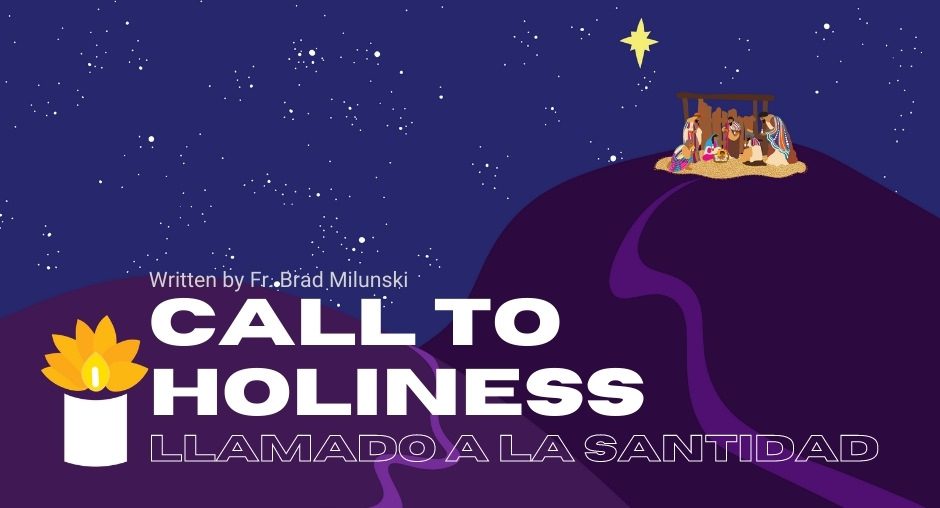Day 28: Call to Holiness

Editor’s Note: Fr. Brad Milunski, OFM Conv. serves as Chair of the FMS Board of Directors and as Postulancy Director for the Our Lady of the Angels Province in Chicago. Reflecting on the meaning of holiness, Fr. Brad considers how Jesus’ life serves as a roadmap for our own lives and how baptism helps us walk in Jesus’ footsteps.
The “universal call to holiness” is probably one of the best-known phrases to have come out of the Second Vatican Council (1962-65). Behind the phrase is the simple concept that every baptized person without exception is called to holiness—lay person, religious sister or brother, priest, deacon, bishop, or pope. The obligation to live one’s baptism to the fullest is the obligation of everyone. Although we naturally think that some forms of life and their rhythms more readily lend themselves to holiness, no one baptized person has a greater obligation to be holy. But the question arises, what does “holiness” mean?
There are many ways to approach “holiness.” From the Bible, for example, we learn that to be holy is to be set apart for God’s use and to be in tune with the divine purposes. Once God has come into contact with a person or even an object, that person or object becomes holy, i.e. set apart for sacred ends. The implication is that what is “holy” now has a deeper dimension that leads us further into God’s own life, a life wholly distinct and more expansive than our limited human life. A person set apart as holy thinks and acts with the purposes of God in mind, both in private as well as public life. (For the Christian, in terms of holiness, there is no compartmentalization possible.) In the Old Testament, both objects and people were subject to a host of laws and regulations to designate clearly what was holy and what was not.
What we celebrate this Christmas season is the fact that Emmanuel, “God with us”, has now shown and taught us what holiness looks like in flesh and blood. The simple and yet demanding question the disciple of Jesus should be asking at every moment is, “Am I thinking and acting with the mind and heart and body of Jesus Christ?” Jesus did not give us a handbook on what to do in every situation, but our belief is that the grace of baptism gives us the ability to think and act like Jesus and that we can grow in this through prayer, worship, and the support of the other baptized. St. Paul summarizes this in his preamble to the famous hymn to the incarnation in Philippians 2: “Have that mind, that know-how in you that was in Christ Jesus….” Holiness, then, means much more than being a nice person or even a virtuous person—let alone a boring person or a killjoy. After all, non-believers and atheists can be nice and virtuous (as well as boring and killjoys!). For the follower of Jesus Christ, however, to be holy is to reflect God’s way of being in the world, and thanks to the Word made flesh, specifically Jesus’ way of being in the world. Holiness makes life much more adventurous and daring.
St. Francis of Assisi’s way of expressing this call to holiness was to say that we are called to walk in the “footprints” of Jesus. For one like St. Francis, who was dedicated to following the gospel fully and completely, to be holy was to walk where and how Jesus walked—knowing that we always have big sandals to fill. The important thing is to keep walking in and following the footprints as best we can. The great spiritual writer Ruth Burrows puts it another way. In speaking of our common call to holiness, she adds the helpful reminder of the line from the Gloria that we pray during Mass on feast days: “You alone are the Holy One.” Any holiness we reflect to others is the result of us not getting in the way of God and allowing ourselves to be instruments of the divine.
May this Christmas season find us walking more readily in the footprints of Jesus and reflecting the Light of the world—the very holiness of God made flesh in Jesus Christ
Reflection question: How have you responded to the “universal call to holiness” in your own life? How might you live out that call more deeply this Christmas season and into the new year?
Tagged in:
